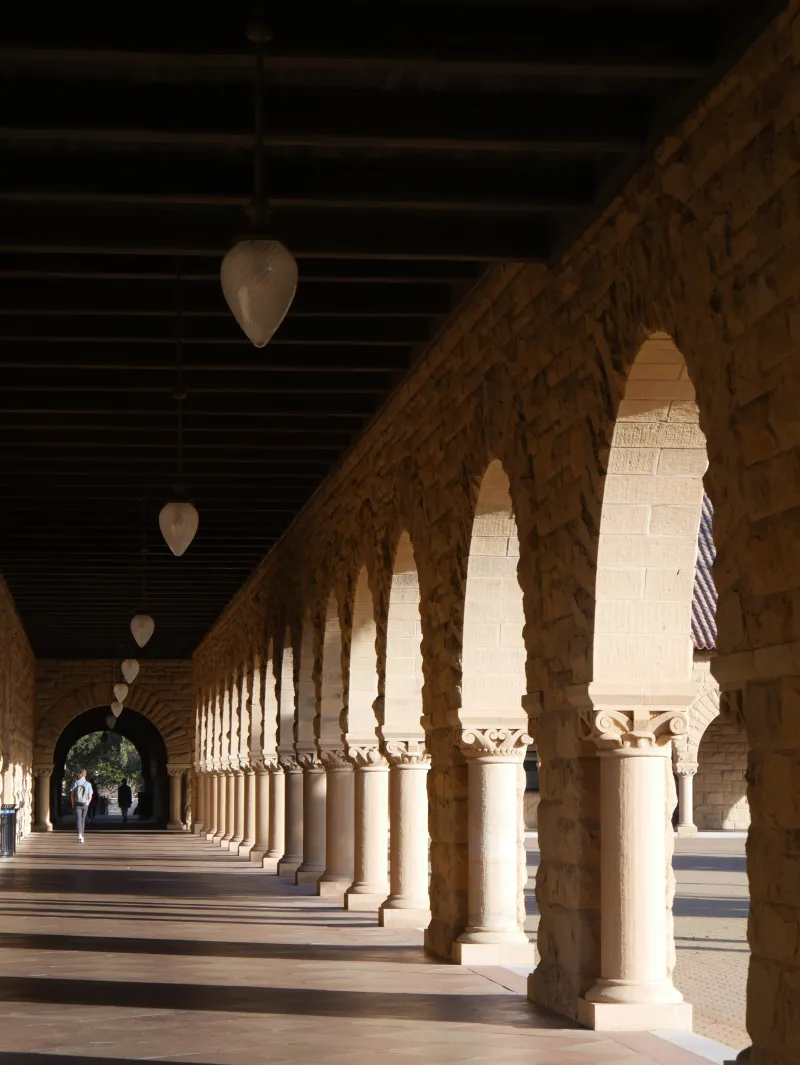Lanier Anderson, the J. E. Wallace Sterling Professor in the Humanities and philosophy department chair, assumed leadership as interim vice provost for undergraduate education in January.
Provost Jenny Martinez appointed Anderson to the position in October after Sarah Church, who formerly held the role, stepped down for health reasons. A search committee is currently working to find a long-term successor.
“I am still very much in the steep part of the learning curve in the new role,” Anderson wrote in a statement to The Daily. “The first month has mostly been about understanding the scope of the work …The most exciting part is hearing from my colleagues about the great work they are doing with students.”
“Nothing would have surprised me more” in early October than being appointed as interim VPUE, Anderson wrote.
After Martinez asked him to consider the role, however, he saw an opportunity to support the office’s work. “I thought it was very important to take my turn and keep these important initiatives going,” he wrote.
Church advised Anderson throughout the leadership transition. He started to meet with colleagues in the VPUE administration in December.
In emails to The Daily, Anderson’s colleagues wrote about him with deep admiration and affection, praising his character and intellect.
“Anderson is the ideal person to occupy this role: he’s knowledgeable, thoughtful, resourceful, passionately committed to the life of the mind and tirelessly dedicated to the undergraduate community,” wrote Joshua Landy, professor of French and comparative literature, who has worked with Anderson for almost three decades.
Landy wrote that he has “always found [Anderson] infinitely responsible as a colleague, exemplary as a scholar, and inspiring as a teacher.”
Anderson and Landy pioneered Stanford’s philosophy and literature program, which brings together faculty across numerous disciplines.
Beyond his academic qualifications, Anderson’s colleagues noted his kindness and strengths as a mentor.
“Perhaps his strongest qualification for the role is his character — he is a person of enormous integrity, honor, kindness and intelligence, qualities that are crucial for a leader who will be responsible for shaping the undergraduate experience for Stanford’s students,” wrote English professor Blakey Vermeule. “He cares deeply about undergraduate education in a broad sense and also as a matter of individual students who he meets where they are.”
Anderson received his bachelor’s degree from Yale and completed a master’s and Ph.D. in philosophy at the University of Pennsylvania. He worked as a professor at Harvard, Bryn Mawr, Penn and Haverford before coming to Stanford in 1996.
A scholar of late modern philosophy, he has written extensively on Kant, Nietzsche and Montaigne. Anderson has also led the North American Nietzsche Society and was a core member of Stanford’s Study of Undergraduate Education between 2010 and 2012.
African and African American Studies chair Ato Quayson wrote that a discussion of Montaigne’s essays with Anderson helped convince him to work at Stanford.
“I decided with him then to one day co-teach a class together,” Quayson wrote. The pair have since co-taught a philosophy and literature graduate class and plan to teach it again next year.
“It has been a great joy teaching this class with him and getting the opportunity to see how he interacts with students. He also happens to be a very decent human being,” Quayson wrote.
Bendix Kemmann, a third-year philosophy Ph.D. student, echoed Quayson’s perspective. “Lanier is very responsive to the needs, wishes and concerns of students,” Kemmann wrote. “He makes time in his very busy schedule to talk with students and shows a great interest in supporting their initiatives.”
Anderson plans to pursue stability in the interim role, continuing efforts that Church undertook as VPUE. “Perhaps the most important of these for the whole University is the successful implementation of COLLEGE,” Anderson wrote.
The office hopes to expand the program — which stands for Civic, Global, and Liberal Education — to become a three-quarter requirement for first-year students.
Anderson also highlighted his commitment to establishing trust between students and faculty while promoting dialogue and free expression across lines of disagreement. “Freedom lets us all belong here, and the fact that everyone belongs is what enables all of us to learn from the remarkable diversity that Stanford attracts from around the world,” he wrote.
The search committee expects to find a replacement VPUE who will transition to the role during the summer or the end of the academic year according to Anderson.
